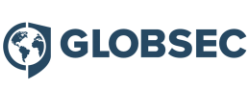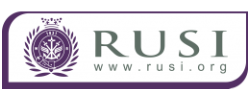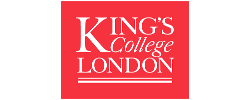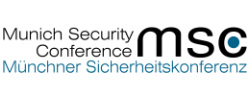Wednesday, July 11 2018
| 09.00 a.m. – 09.15 a.m. | Opening Nik Gowing , Founder and Director , Thinking the Unthinkable Ines Pohl , Editor-in-chief , Deutsche Welle The Hon. Rose Gottemoeller, Deputy Secretary General, NATO | Main Stage |
| 09.15 a.m. – 10.00 a.m. | Framing the Debate | A Shifting Global Order and an Alliance under Pressure H.E. Mevlüt Çavuşoğlu, Minister of Foreign Affairs, Republic of Turkey H.E. Jacek Czaputowicz , Minister of Foreign Affairs , Republic of Poland H.E. Ursula von der Leyen , Minister of Defense , Federal Republic of Germany Moderator: Ali Aslan , Presenter , Deutsche Welle TV The NATO Summit Brussels takes place at a time when the world is turbulent in ways not seen for many decades. Global power shifts, rising and revisionist powers, new technologies, stormy domestic politics across the West, mass migration, and weakened states in the Middle East and North Africa have combined to throw the future of the global rules-based order into doubt. How the world navigates these choppy waters in the years to come will determine whether a new order can be found, or if we are collectively heading into an era of global disorder. | Main Stage |
| 10.00 a.m. – 10.30 a.m. | Our Shared Global Values The Rt. Hon. Justin Trudeau MP, Prime Minister, Canada The Hon. Chrystia Freeland MP, Minister of Foreign Affairs, Canada The Hon. Harjit Singh Sajjan MP, Minister of National Defense, Canada Moderator: Karen Donfried, President, The German Marshall Fund of the United States | Main Stage |
| 10.30 a.m. – 11.15 a.m. | Coffee Break | Lobby |
| 11.15 a.m. – 11.45 a.m. | Setting the Stage for the 2018 NATO Summit H.E. Jens Stoltenberg , Secretary General , NATO Moderator: Barbara Starr , Pentagon Correspondent , CNN Right before the summit starts, NATO Secretary General will share his insights into the topics to be discussed and decisions expected to be reached. He will touch on the specific steps NATO leaders will take in key areas from further enhancing deterrence and defense, with stronger reinforcement and better readiness, to increasing efforts to project stability and fight terrorism, to deepening cooperation with the European Union, including military mobility, to name but a few. He will then take questions from the audience. | Main Stage |
| 11.45 a.m. – 12.30 p.m. | Putting People First: Inclusive Security and NATO Lima Ahmad , Fletcher Scholar , NATO Defense College Isabelle Arradon , Director of Research and Special Adviser on Gender, Peace and Security , International Crisis Group Lieutenant General Steven M. Shepro, Deputy Chairman, NATO Military Committee Moderator: Ryan Heath , Political Editor , POLITICO Europe NATO provides security to families and communities of all ethnicities, religions, and races within the Alliance and across NATO’s many areas of operation. Developing ties to the people it protects has always been a critical task for the Alliance, and NATO engages with women and children in its missions. But as the evolution of security threats brings dangers into communities, it is essential for NATO not only to communicate with populations but also to embody the diversity of the populations it serves. As NATO considers its modernization and future, transforming its operations and ranks to include more women and people of diverse backgrounds would signal a true commitment to putting people first and illustrate to citizens that they, too, are NATO. | Main Stage |
| 12.30 p.m. – 1.15 p.m. | Spotlight | The Blessings and Curses of Technology Zdravko Mladenov, Associate Partner, McKinsey and Company Thomas Müller, Chief Executive Officer, Hensoldt Sensors Alvin Salehi, Senior Technology Adviser, US Government Moderator: Klara Jordan, Director, Cyber Statecraft Initiative, Atlantic Council The pace of technological innovation is accelerating. Between the introduction of the first personal computer in the 1980s and the invention of the smartphone lie only a few decades — but many milestones of technological innovation. Those rapid changes in technology present a blessing and curse at the same time. As these new devices are increasingly affordable and interconnected, this provides immense opportunities and enriches our lives but it also creates new vulnerabilities. Not only are societies faced with changes so rapid and disruptive that they can hardly adapt. But new technology can also be (mis)used by state and non-state actors, creating real damage (e.g. attacking critical infrastructure) through digital means. | Main Stage |
| 1.15 p.m. – 2.30 p.m. | Lunch | Lobby |
| 2.30 p.m – 2.45 p.m | Spotlight | War by Other Means ? Disinformation and Election Interference Laura Rosenberger , Director , Alliance for Securing Democracy; Senior Fellow , German Marshall Fund of the United States Moderator: Julia Ioffe , Correspondent, GQ Magazine Disinformation campaigns — particularly during election periods — pose a serious threat to the transatlantic community’s democratic values and institutions. This was demonstrated by, among other things, Russia’s disruptive campaign to subvert the 2016 U.S. presidential elections, as well as by Russian disinformation strategies in Europe to paralyze transatlantic decision-making and foster divisions among EU member states. Russia has also been using information operations as part of its ongoing hybrid war with Ukraine. Disinformation strategies may take various forms and involve traditional media, social networks, and political parties. This session will take stock of the progress made so far by the transatlantic community in addressing the serious threats posed by disinformation campaigns. | Main Stage |
| 2.45 p.m. – 3.45 p.m. | Back to Basics | Defense and Deterrence in the Modern Age General Knud Bartels, DKA (Ret.) , Adjunct Professor , Royal Danish Defense College H.E. Raimundas Karoblis , Minister of National Defense , Republic of Lithuania Commander Helena Linder-Jess , Commanding Officer, German Navy, Federal Armed Forces , Federal Republic of Germany Noam Perski , International Government Lead, Palantir Technologies, London Moderator: Sebastian Sprenger , Associate Editor for Europe , Defense News Collective defense and deterrence are back in focus for NATO in the wake of Russia’s annexation of Crimea and continued assertiveness by Moscow against the United States, Europe, and NATO. New friction zones have emerged between Russia and NATO in northern Europe and in the Black Sea region, where Russia has, among other things, built powerful anti-access/area-denial networks to hamper NATO’s ability to operate there in a crisis. In addition, the Alliance needs to provide credible defence and deterrence against the challenges emanating from the South. The task is all the more difficult as lessons from the past have limited value in light of new technologies and different geographies. How should NATO accomplish its core mission of collective defense and deterrence in the 21st century? And is the Alliance currently on the right track? | Main Stage |
| 3.45 p.m. – 4.15 p.m. | Coffee Break | Lobby |
| 4.15 p.m. – 5.15 p.m. | Break Out Sessions (off the record) 1) Cyber Crisis Simulation Ambassador Sorin Ducaru , Special Adviser , Global Commission on the Stability of Cyberspace Carmen Gonsalves , Head of International Cyber Policy Department , Kingdom of the Netherlands; Co-chair, Global Forum on Cyber Expertise Tanel Sepp, Head of the Cyber Policy Department, Ministry of Defense of the Republic of Estonia Moderator: Diana Kelley , Cybersecurity Field Chief Technology Officer , Microsoft Concerns about cyber security have skyrocketed as governments, economies, and societies increasingly depend on the internet and digital technologies. The increasing number of cyber-attacks also places new pressures on top of long-existing coordination difficulties when EU and NATO countries find themselves in need to respond to a cyber-driven crisis. The scope and sophistication of modern cyber-attacks require quick, interoperable responses throughout all strategic and logistical layers, from the political leaderships to civil services to the private sector. The objectives of this cyber exercise will be to highlight challenges in decision-making and response procedures when facing a crisis situation caused by a cyber-attack; to identify what capabilities help the decision-making process and multi-stakeholder intelligence sharing; and to improve cyber awareness among the participants as well as highlighting lessons learned and best cyber practices. A panel of practitioners will be asked to respond in real-time to a realistic cyber crisis scenario unfolding in a fictional country. The audience will be asked to play an active role during this exercise by commenting and voting on the most convincing response options presented by the panelists as the crisis scenario evolves. 2) Digital Forensics Demo Lukas Andriukaitis , Digital Forensic Research Assistant, Baltics and Eurasia, Digital Forensic Research Lab , Atlantic Council Graham Brookie, Director, Digital Forensic Research Lab, Atlantic Council Ben Nimmo , Information Defense Fellow, Digital Forensic Research Lab, Atlantic Council Humans are more interconnected than at any point in history, and the Atlantic Council’s Digital Forensic Research Lab is building a leading hub of digital forensic analysts tracking events in governance, technology, security, and where each intersect as they occur. This interactive session will demonstrate the power of open source analysis. DFRLab will demonstrate how they are using open sources to improve protection against hostile narratives against the Enhanced Forward Presence and get ground truth in conflict zones from Ukraine to Syria. 3) The New Nuclear Age Beatrice Fihn, Executive Director , The International Campaign to Abolish Nuclear Weapons Karl-Heinz Kamp , President, German Federal Academy for Security Policy Guy Roberts, Assistant Secretary of Defense for Nuclear, Chemical, and Biological Defense Programs , US Department of Defense Moderator: Ali Ahmad, Director, Energy Policy and Security in the Middle East Program , American University of Beirut A second nuclear age, marked by more actors and less stability, is taking shape. At the Warsaw Summit in 2016, NATO member states have repeated their long-time position that “[a]s long as nuclear weapons exist, NATO will remain a nuclear alliance” and reaffirmed their “resolve to seek a safer world for all and to create the conditions for a world without nuclear weapons in full accordance with all provisions of the NPT […].” Yet, some observers argue that changes in technology, doctrine, and rhetoric, in particular in Russia, call for a renewed debate on NATO’s nuclear deterrence posture and, possibly, an update of NATO’s 2012 Deterrence and Defence Posture Review (DDPR). | Main Stage Breakout Room 1 Breakout Room 2 |
| 5.30 p.m. – 6.00 p.m. | A Conversation with Zoran Zaev H.E. Zoran Zaev, Prime Minister, The former Yugoslav Republic of Macedonia* Moderator: Damon Wilson, Executive Vice President, Atlantic Council * Turkey recognizes The Republic of Macedonia with its constitutional name | Main Stage |
| 06.00 p.m. – 6.45 p.m. | Special Screening: “NATO HQ: Behind the Lines” Jamie Shea , Deputy Assistant Secretary General for Emerging Security Challenges , NATO Moderator: Cristina Gallach, High Commissioner for the Agenda 2030, Kingdom of Spain This year, NATO has left one of its trademarks, the old headquarters. But one of NATO’s trademark characters will also be leaving. As Jamie Shea retires, he and his colleagues past and present, friends, and experts give their take about what really happened during the main events in NATO’s old HQ. This brief documentary charts how NATO changed from the respected but static Alliance of the Cold War when Jamie joined, to the modern and dynamic international player which he leaves. After the screening, Jamie will do a Q&A on stage. | Main Stage |
| 6.45 p.m. – 7.00 p.m. | Day One Wrap-Up Nik Gowing, Founder and Director , Thinking the Unthinkable Ines Pohl , Editor-in-Chief, Deutsche Welle | Main Stage |
| 7.00 p.m. | Transport to Reception Venue | |
| 8.00 p.m. – 9.30 p.m. | Evening Reception and Buffet Dinner Without NATO, What? Competition Winners Muhammad Waqar Ahmad,Research Analyst, NATO Association of Canada Tamari Jibuti, Member, YATA Georgia Benjamin Patterson, Vice President, YATA Canada Introduced by: Sascha Mueller, Program Coordinator, Engagements Section, NATO Public Diplomacy Division | Tour and Taxis |
| 9.30 p.m. – 10.30 p.m. | Night Owl Session (off the record) | Beyond the Liberal Order: How to Deal with Russia and China Iskander Akylbayev, Executive Director, Kazakhstan Council on International Relations Lilia Shevtsova, Associate Fellow, Russia and Eurasia Program , Chatham House Ambassador Alexander Vershbow, Distinguished Fellow, Atlantic Council Gunnar Wiegand, Managing Director for Asia and the Pacific, European External Action Service Moderator: Bobo Lo, Associate Research Fellow, Russia and New Independent States Center, French Institute of International Relations In the first several lines of the NATO founding treaty the Alliance is charged with safeguarding “freedom” founded “on the principles of democracy, individual liberty, and the rule of law.” In its near 70-year history, the Alliance has done much to strengthen, sustain, and forward ideals that “promote stability and well-being.” Yet, the 21st century has provided a counter-narrative to this system and set of values. Specifically, Russia and China have provided an alternate model outside of and often incongruent with the post-World War II international system and the norms underpinning the Alliance. Over recent years, the contrast between norms-driven engagements and power politics have been on stark display as military conflict and the use of force in Europe has returned. Russia has proven itself to be more geopolitically and militarily assertive in the past decade. Beyond this, China’s rise has only accelerated. Moreover, it has largely done so in competition with the liberal democratic order, as it has invested economically and politically across various geographic regions and set up competing institutions. | Tour and Taxis |






